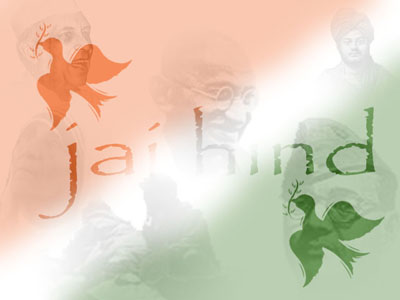[Economics and Tax] The Path to Long-Term Prosperity
 •
by
•
by Devoid
Foreign Policy
As I mentioned previously, I will be putting out 4 articles, regarding Foreign Policy, Economics & Taxation, Military Organization, and Internal Affairs. This is the second.

It's all about the rupees.
Fiscal Responsibility
Let's start with an easy one. We don't have a budget. This needs to change. We need to set up a system in which we make a once-weekly payment to each of our budget lines: military, internal affairs, and whatever else we have. Heck, I don't even know where all our money goes, because we don't have a budget nor any oversight.
On a related note, we also need a means to track just how much income we have from all our various sources. How can we set up a plan for expenditures if we don't know how much money we're taking in?

Tax & Economic Policy
Now onto the more complex stuff. The goal of our various economic policies must be to provide India with a strong foundation for prosperity over the long term. If we are to ever achieve that baby boom we've wanted for so long, and be a powerful nation on the world stage, we can't be taking shortcuts now.
So what tools do we have? Well, there's 3 different kinds of taxes. We can also print money and issue it through the Indian Government Bank at a certain rate, and set embargoes. Let's talk just a little bit about each of these.
Income taxes tax wages, as well as withdrawals from companies. However, all business owners should be using the trick with the monetary market to take money out, making the income tax purely a tax on wages. This should be the primary means for the government to earn its tax revenue, since everybody who plays the game works, and thus pays this tax. This also means that it affects less-active players just as heavily as more-active ones.
Import taxes, as the name implies, tax imports. These taxes tend to discourage imports, by making foreign goods more expensive than domestic goods. However, as I will go into further detail on later, not only are these an inefficient source of earning revenue, but there are very few instances in which discouraging imports is a good thing.
VATs are a tax on a finished good. These affect both domestic and imported goods. These drive up prices, discouraging consumption, which is not good for the economy. Also, since active players consume more goods, this places a disproportionate burden on more-active players. A tax on food, however, might be advisable since all players eat.
Issuing money can be done by all governments, at a price of 0.005 gold per unit of currency. It can then be sold at the rate the government sets for the value of its currency, called the peg. Since the government has the ability to put forth a relatively very large amount of currency, the government's peg generally ends up as the accepted exchange rate. The government must take care not to issue too much new currency, or inflation becomes an issue. A stronger currency, that is one which is relatively worth more gold, supports imports for the nation, whereas a weaker currency supports exports. I really don't care to go into the long and horrible details of that bit, please don't make me.
Embargoes cut off all trade with another nation. Since trade is a good thing, only happening when it will be mutually beneficial, thise harms both the embargoer and the embargoee, and thus the instances where this might be useful are very rare.

She's breaking one up.
So, what are we going to do with all of these, and to what end? Well as I previously mentioned, income taxes should be our main tool for acquiring revenue. However much we need, as determined by our budget...once we make it. Then we can see whether our current income tax rate is making us enough, and adjust from there. Our current rate is scattered across the 5-10% range, which is not acceptable. The market will send the workers to where they are needed, to make the stuff the market wants, so long as we have level taxation. Whether our income tax rate should be 8%, or 10%, or 15%, or whatever, it needs to be the same across all industries. Otherwise we shall suffer from an inefficient market.
Let's talk about purchasing power. This has to be a major goal. Purchasing power is simply how much stuff one can buy, determined by your wage and by the prices in the market. The more purchasing power a nation's populace has, the more prosperous it is. Plus, the more damage it can do, buying more weapons and having higher wellness. Purchasing power is king. Time to walk down the road to purchasing power.
While we have already explained why income taxes are necessary, let's get on why import taxes (tariffs) and VATs are bad for purchasing power. VATs obviously increase the price for finished goods, making it quite clear how these negatively impact purchasing power. Tariffs do the same thing, forcing us to buy from domestic companies, who are less efficient that the foreign companies who are able to sell on our market. If they can produce goods more cheaply, it benefits us to buy these cheaper goods. But, you may say, if everything is produced domestically, won't that create more jobs and increase our wages? Well sure, it will. And not only do increased wages increase costs of production (thus driving up prices), but this forces companies to pay more to lower-caliber workers from our small country's very limited labor base. What does this all mean? Tariffs drive up prices faster than wages, diminishing purchasing power and making us all poorer.
Also, the argument that we should be self-sufficient is a bit silly. There will always be a company in a nation somewhere willing to sell to us so long as we don't have trade barriers (tariffs) to keep them out. The fear of running out of food or weapons is entirely unfounded. Moreover, forcing out imports is far more likely to cause shortages than anything else. In the recent battle for Rhone Alps, the huge and mighty Poland ran out of weapons, because of its 99% tariffs. The same happened to Australia a little while back (a country which has learned its lesson, and now has far lower tariffs). Self-sufficiency is in fact the road to poverty.
Specialization, now that is the road to prosperity. We have something that few other countries have: wood. And iron once we get that back, eventually. So logically if we specialize in wood production, this gives us a major advantage. There are no shortage of countries all over the world who would love to get themselves some Indian wood in their markets. The more wood we can export, the better. But of course India has a very limited worker base. And much of it is producing food, and weapons, and houses...you know, the kind of stuff that every nation in the world can produce. It is painfully clear that the best route for us will be to import as many finished goods as reasonably possible, so that we are free to export more of the stuff where we have an advantage. While it wouldn't be fair to current business owners to bottom out tariffs on finished goods overnight, I will work with Congress and push to lower them over time, for a stronger, more efficient economy and a more prosperous population.

TLDR version:
Set up a budget and stick to it.
Exports are great.
Imports are great too.
Let's encourage both, specialize toward the raw materials where we have an advantage.
And let's take steps to give the Indian people the best purchasing power possible.
Any questions or comments, leave them here, or send me a PM, or catch me on IRC in #India (irc.rizon.net).



Comments
inbeforearticle
Yeah, looks like it will be awesome though 🙂
How the hell did two guys comment before I actually got the article up 😮
They must be hanging on my every word!
Good luck, Devoid!
why thank you devoid its a good article and I prob will be voteing for you in the election
Nice article Devoid.
Trade FTW.
Great thoughts... Together we can and together we will
Excellent article. India would be in good hands with you at the helm.
Brillaint Devoid. Also to add, the finance part has to be monitored one way. To keep the faith, a report has to be published once a week or bi-weekly. That way the public will know what we are spending on and at the same time will be easy for our budget analysis. It was followed by me, Akash and Shail/gaurav but then the report structure disappeared. I shall talk to u abt this in pm later on.
U have my support Devoid
i hope all policies will be passed in a committee and not individually....